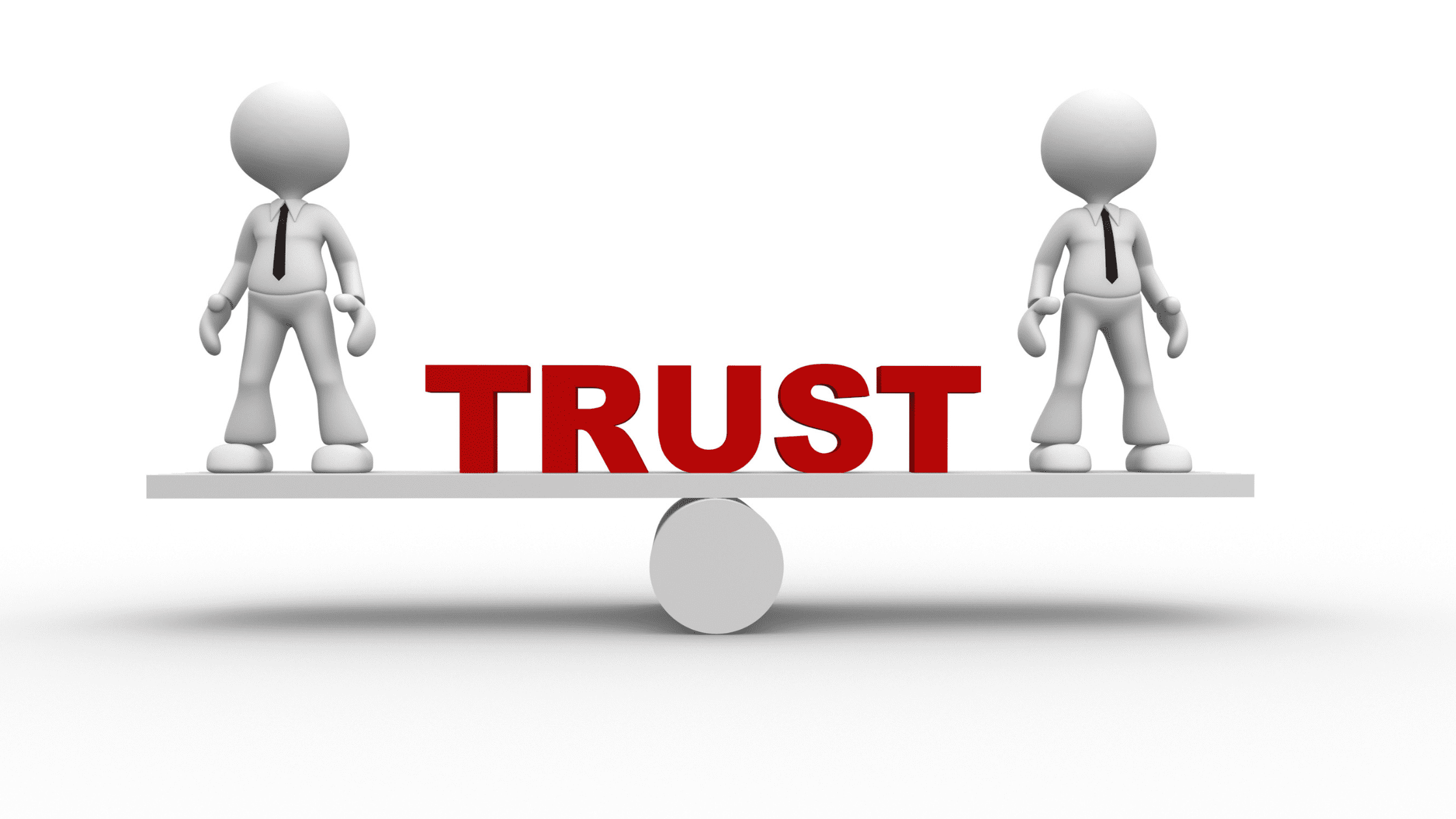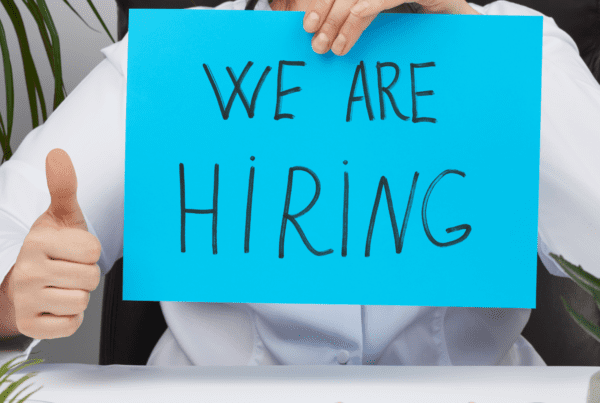“Trust is the most overlooked, misunderstood, underutilised asset an organisation can access”- Stephen M.R Covey, The Speed of Trust
We all know that trust is a positive thing. You could say trust is common sense… but it’s not yet common practice. Not in the intentional, actionable, learnable way that individuals need to truly perform better, adapt faster, and feel psychologically safer. The most credible, strategic-minded leaders know this.
In his best-selling book The Speed of Trust, Stephen M.R Covey (the son of our co-founder and author of FranklinCovey’s Trust solution) lays out the high cost of low trust on both morale and the bottom line. Without the integrity, credibility, humility and reciprocity of trust-based relationships, a lot of what employees do becomes laboured, stilted, resented, suspicious and unsustainable. This translates as a “tax” on not just effectiveness and productivity, but wellbeing and sense of worth. Low-trust organisations simply aren’t places people want to stay.
This is a “tax” no organisation can afford. In an era when trust is hard to come by – and constantly challenged by changing and distressing circumstances- leaders at all levels need to understand four fundamental truths about trust.
- Trust isn’t soft, it is a hard economic driver
If trust is treated like an intangible buzzword instead of a critical behaviour of high performers, then high-performance is exactly what is lost. Stephen M.R Covey puts it like this: “most organisational performance issues are actually trust issues in disguise”. It feels unlikely to some, but there is decades worth of data revealing the link between trust and all key business metrics. Great Place to Work has been tracking the economic outcomes of trust for years, finding that for high-trust companies, the stock market returns two to three times greater than the market average.
Why might this be? In a low-trust culture, ideas, people and progress are slowed down by a complete lack of true collaboration. Conversely, high-trust organisations enjoy greater speed, innovation and discretionary effort from empowered employees unencumbered by low-trust “taxes”. It is no surprise that Great Place to Work also found that such employees are 3x more likely to report their colleagues are willing to give extra to get the job done.
Add up the little “extra” that each of your employees possess and you gain a great saving.
- You need to consider your own credibility first
Trust is the #1 leadership competency because it has the capability to amplify or diminish all other competencies. All the value a leader adds becomes immediately diluted if they don’t behave in an authentically trustworthy way. People see through surface level attempts to placate, understand and empathise. If you want to build a high-performance, high-trust team, you need to look inwards first.
Central to leaders who inspire trust is their credibility. Part of your credibility comes from your competence, your relevancy, your professional expertise, and track record of results. The rest comes from your character, do you do what you say you’re going to do? Do you live by a set of values? Are you transparent with your intent? Are you always certain that your intent is above aboard? It is the consistency of your behaviour that ultimately ensures the credibility, through the way you operate and communicate on a daily basis.
The impact of such behaviour- or the lack of it- simply cannot be underestimated- a recent 2020 Gallup report shows that the five root causes of employee burnout are influenced by manager behaviour.
Thankfully, the converse is also true: Employees who trust their team leader are 14 times more likely to be fully engaged at work (ADPRI).
- None of this will work unless trust is extended, as well as inspired
Is your team filled with trustworthy people but you’re not seeing the benefits of that behaviour? That is because, in the words of Stephen M.R Covey, “almost everybody understands what it means to be trustworthy; very few understand the importance of being trusting”. Trust is reciprocal, it needs to go both ways.
There are many reasons people find it difficult to extend trust. Distance (as we’ve experienced this past year) is one of them. A breeding ground for our unconscious biases, distance means we fill the gaps of what we can’t see with our own assumptions about what people are doing, thinking, or how hard they’re working. Acknowledging any patterns in who we typically trust- and who we don’t- is essential to understanding the type of trust you currently leverage most:
- False trust: Giving people responsibility, but no authority or resources to complete a task
- Fake trust: Disguises itself as true trust until you follow-up behind people’s backs and micromanage
- Smart trust: Trust shouldn’t be blind, but it should be abundant in that it’s an opportunity that is always on the table. Setting clear expectations and processes of accountability as conditions for earning and keeping trust is key, with the criteria differing depending on each unique situation.
What distinguishes good managers from great leaders is their ability to see and unleash the latent potential of another person—their ability to extend trust and empower ownership in others. Trust is an organisation’s most enduring competitive advantage because it centres around how people do their current work. To both be trusted and able to trust in your leader is the most transformative form of human motivation.
- It has never been more relevant
If you don’t already measure trust then you must. It is the only way to know where your company stands and provide you with a starting point.
Stop and take stock of you and your organisation’s behaviour over the past year. Was all change handled with transparency in mind? Notably, in a recent Gallup survey revealed that 35% of U.K. employees strongly agree that their employer has communicated a clear plan of action in response to the pandemic, and in turn only 27% strongly agree that their company cares about their overall wellbeing.
With the success of 2021 hinged on our ability to institutionalise the irreversible changes to how people think and feel about their work towards an even stronger organisational culture, the presence of trust in every day interactions will be something many leaders will want- and need- to look at.
For more on how trust is the greatest enabler of a high-performing culture, please join us for our upcoming complimentary webinar on The Speed of Trust this June, which includes a live Q&A with one of our expert consultants. Click here to read more and reserve your place.
Author: Alasdair Lane, Client Partner, FranklinCovey EMEA
https://www.linkedin.com/in/alasdairlane/
Alasdair has been working in performance improvement for the past 25 years. He started his career with the British Army and subsequently has worked as a performance coach in professional football, as well as coaching Senior Executives from companies like Goldman Sachs, PWC and Monkton Chambers. You can connect with him on LinkedIn at https://www.linkedin.com/in/alasdairlane/





